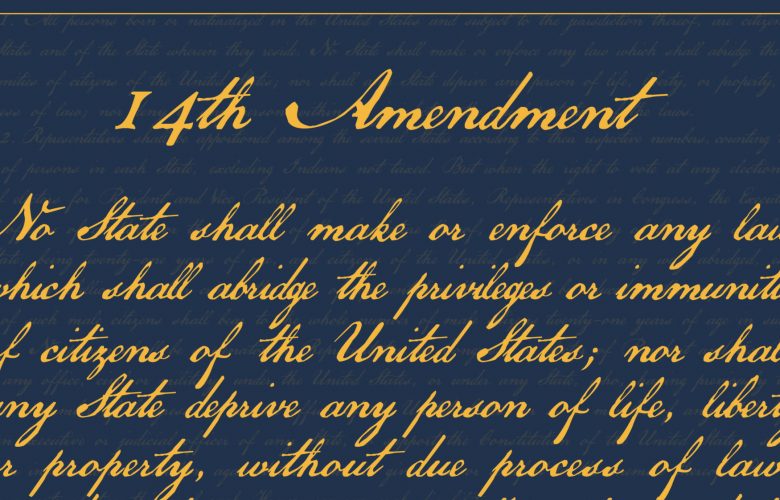July 15, 2020
Gabriella Hakopian
NEW YORK, NY – Following the death of George Floyd, an unarmed black man who was brutally murdered by Derek Chauvin, a white officer who pulled his gun on Mr. Floyd within 15 seconds of encountering him back in May, prompted the 46-year-old man to plead for his life.
The question that America is now asking: has the Supreme Court enabled horrific violence by ignoring Constitutional History?
The killing of George Floyd sparked many questions. Has the Court really been ignoring the Constitutional History in this country? The Supreme Court has continued to enable the killing and horrific police violence that we continue to see by simply ignoring our constitutional history. One of the key components of passing the Fourteenth Amendment was ending police violence and brutality against black people – this critical purpose failed.

As the Fourteenth Amendment states, “All persons born or naturalized in the United States and subject to the jurisdiction thereof, are citizens of the United States and of the State wherein they reside. No State shall make or enforce any law which shall abridge the privileges or immunities of citizens of the United States; nor shall any State deprive any person of life, liberty, or property, without due process of law; nor deny to any person within its jurisdiction the equal protection of the laws,” the Supreme Court rather than taking this amendment seriously, takes a more open ended approach to police brutality.
According to a recent article, “The Supreme Court has made matters even worse by rewriting Section 1983, a Reconstruction-era law designed to enforce the 14th Amendment, changing the law to give police officers a sweeping immunity from being sued, even when they engage in brutal conduct. Under the doctrine of qualified immunity, a person victimized by the police must show that the officers violated “clearly established” law. In practice, this means that a police officer cannot be sued for violating an individual’s constitutional rights unless there was a prior case closely on point. And because the excessive force standard is so vague and fact-dependent, qualified immunity makes it incredibly difficult to hold police officers accountable for police brutality, as a recent Reuters report showed and which advocates on both the right and the left have decried. When individuals go to court to redress police abuse of power, they almost always find that the courthouse doors are bolted shut.
Young voters, our time is now, if we continue to let older generations decide how this country is going to be run, it will be the same for another 40 years. According to young author Issac Sanders it’s time to
1) Listen to Black, Indigenous, People of Color (BIPOC) young voices to inform your system,
2) Collaborate with the advocacy of BIPOC folks in your community, and
3) Create advocacy agendas and demands requiring police brutality and encampment sweeps to end in your communities. The link to Issac’s article will be at the bottom of the page, it serves as an insightful and educational opportunity.
I leave you with a quote from Maya Angelou,
“Prejudice is a burden that confuses the past, threatens the future and renders the present inaccessible.”
It’s on all of us to change the conversation, so get out there and vote.
https://awayhomewa.org/ending-police-violence/ (Issac’s Article)
